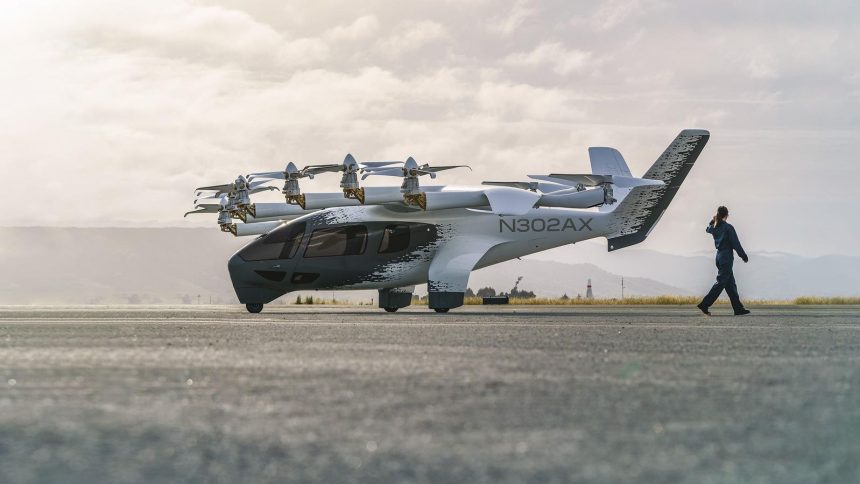Archer Aviation (ACHR) has experienced dramatic fluctuations in its stock value over the past month, highlighting the volatility within the electric air taxi industry. On November 5, the stock was priced at $3.25, but by November 29, it soared to $9.75, representing a staggering 200% increase in a little over three weeks. This surge was mainly attributed to investor enthusiasm surrounding the electric vertical takeoff and landing (eVTOL) aircraft, which many view as the future of urban transport, promising swift and convenient passenger experiences similar to ride-hailing services. However, the excitement was short-lived; within just a day of reaching its peak, Archer’s stock plummeted by 25% on December 2, demonstrating the precarious nature of investment trends in this emerging sector.
The burgeoning field of electric air taxis has captured the imagination of the investment community, with estimates suggesting that over 300 startups are now competing to create the next groundbreaking vehicle. Billions have been funneled into these ventures, driven largely by visions of urban landscapes transformed by fleets of flying taxis. Despite the enthusiasm, the challenges of certifying new aircraft for commercial use in civil aviation cannot be underestimated. The complex integration of cutting-edge technologies, alongside considerations for ground and airspace infrastructure, imposes significant regulatory burdens. Consequently, the timeline for achieving market readiness is lengthy, often extending beyond a decade, with financial requirements scaling into the billions rather than hundreds of millions.
Archer Aviation launched its operations in 2018 and achieved several key milestones by 2021, including building a dedicated team, finalizing aircraft design, and securing a significant initial order from United Airlines. By 2023, Archer had progressed to flying a prototype named Midnight and had successfully raised a total of $1.1 billion in funding. However, their financial results paint a sobering picture; in the third quarter of 2023, Archer reported a net loss of $115 million, up from a loss of $97 million the previous year. The losses accumulated throughout the year total $338 million over the first nine months, underscoring the capital-intensive nature of manufacturing in aviation, particularly for early-stage companies.
Despite the heavy losses, Archer’s stock enjoyed a notable rally in November, driven not only by financial optimism but also by a potential order from a Japanese joint venture for up to 100 Midnight aircraft. However, it is crucial to note that this was merely a right to place an order, not a guaranteed commitment, which raises questions about the stock’s inflated valuation at that time. Additional factors contributing to the stock’s rise included the development of a meme-like fervor among retail investors, reminiscent of the volatility experienced by AMC and GameStop stocks, where fears of missing out on potential gains prompted widespread buying among individual investors. This activity fueled a “short squeeze,” forcing institutional investors to purchase shares at surging prices to cover their short positions.
The sudden 25% decline in Archer’s stock can be traced back to several challenges faced by Stellantis, the automaker heavily invested in Archer and poised to deliver additional funding of around $400 million. Stellantis has struggled throughout the year due to bloated dealer inventories and a failure to align with changing consumer preferences. The situation worsened when Stellantis’ CEO was unexpectedly ousted, which rattled investor confidence not only in Stellantis itself but also in its commitment to support Archer’s ambitious aviation projects. With Stellantis’ uncertain future, Archer’s stock faced intense pressure as investors speculated on the viability of their partnership.
As the industry grapples with the twin forces of Stellantis’ instability and the broader challenges facing the eVTOL market, volatility is expected to persist in the near future. Additionally, developments such as Lilium Air Mobility’s recent bankruptcy filing serve as a warning signal to investors, potentially indicating a looming shakeout within this crowded sector. The fate of Archer Aviation will hinge upon addressing regulatory hurdles, maintaining financial partnerships, and convincing investors that the electric air taxi model has a sustainable future amid the uncertainties of the aviation landscape.



